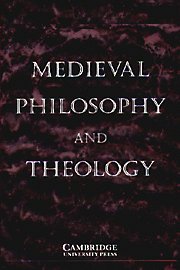No CrossRef data available.
Article contents
The Discovery of a Normative Theory of Justice in Medieval Philosophy: On the Reception and Further Development of Aristotle’s Theory of Justice by St. Thomas Aquinas
Published online by Cambridge University Press: 30 July 2001
Abstract
Aristotle earns the distinction of having put forward the first comprehensive philosophical theory of justice. After the end of the antique world, St. Thomas Aquinas was the first philosopher and theologian to return to Aristotle’s theory of the just. Not only did he do so with the requisite systematic precision; he also developed a new philosophical interpretation of justice. In the present article I shall outline, with the brevity expected of me here, the fundamentals of Aristotle’s theory of justice. This will be followed by a summary of the core aspects of Aquinas’s notion of justice, whose grounding in normative reason will be identified in Aquinas’s treatise on law and political theory, and explicated accordingly.
- Type
- Research Article
- Information
- Copyright
- © 1999 Cambridge University Press




